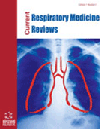
Full text loading...
Cystic fibrosis (CF) is a chronic and incurable disease that mainly damages the lungs and digestive system. Variations in the cystic fibrosis transmembrane conductance regulator (CFTR) gene cause CF, a genetic disease that requires medical intervention due to multi-organ effects, particularly on the lungs. There are over six classes of variations observed in CF until now. The treatment and management of CF have greatly improved due to recent genetic advancements, especially the development of CFTR modulators such as Ivacaftor, Lumacaftor, and Tezacaftor, which may eventually lead to a cure for this incurable condition. Nevertheless, despite these developments, additional studies are still needed to elucidate the complex molecular pathways involved in CF and to develop more focused and efficient therapeutic approaches. In terms of CF clinical care and research, this study intends to offer a thorough examination of CFTR genetic polymorphisms with an emphasis on the variation of F508del and CFTR modulator drugs along with their clinical characteristics and the possible long-term effects of new findings and treatment choices. Moreover, the main benefits of treatment techniques like gene therapy, CRISPR-Cas9 systems, and nanotechnology-driven strategies have been discussed in the current study. Furthermore, as early diagnosis of CF provides the opportunity to prevent and control the complications of this disease, so a particular focus on the current newborn screening techniques has been covered as well. The present study's data have been meticulously chosen by an extensive review of the literature and it comprises an overview of findings from comprehensive investigations and peer-reviewed research publications about CF and associated therapies. The present study will assist in the continuous improvement of clinical practice and the creation of more potent treatment plans for CF patients.

Article metrics loading...

Full text loading...
References


Data & Media loading...

